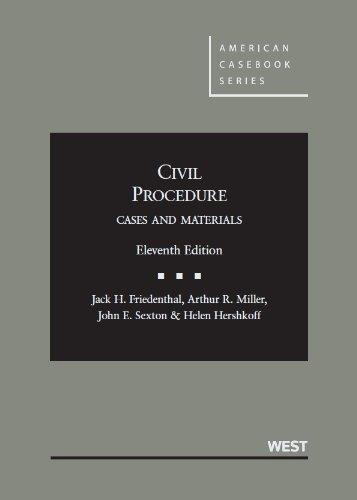4. State judicial systems also provide for amendments during and after trial. In MOORE v. MOORE, 391
Question:
4. State judicial systems also provide for amendments during and after trial. In MOORE v. MOORE, 391 A.2d 762 (D.C. Ct. App. 1978), a custody suit brought by the father, the court granted the mother’s post-trial motion to conform the pleadings to the evidence and for attorney’s fees, and awarded her custody despite the absence of any request for affirmative relief in her pretrial pleadings. The father argued that it was an abuse of discretion under the state amendment rule for the court to have permitted a post-trial pleading631amendment and to award affirmative relief, contending that he did not have notice. In particular, he argued that he did not know that matters contained in the counterclaim were at stake and “he was not prepared, nor given an adequate opportunity, to contest them.” Id. at 768. The court rejected these arguments:
Our treatment of this argument must begin with Rule 15(b), which is identical to Fed.R.Civ.Pro. 15(b). Our analysis is accordingly aided by authorities which have interpreted the federal rule. * * * If issues not raised in pleadings are tried by express consent of the parties, there can be no question about the propriety of permitting amendment. The difficult issue arises when, as in most Rule 15(b)cases, “implied consent”
is asserted.
Step by Step Answer:

Civil Procedure Cases And Materials
ISBN: 9780314280169
11th Edition
Authors: Jack Friedenthal, Arthur Miller, John Sexton, Helen Hershkoff






